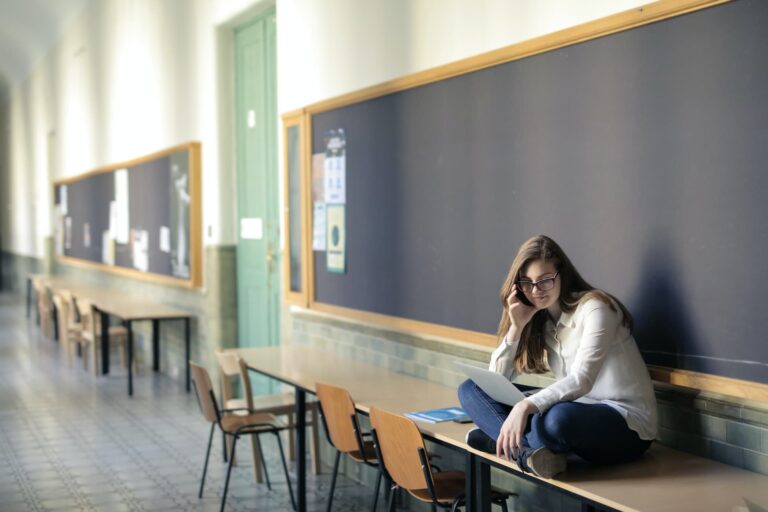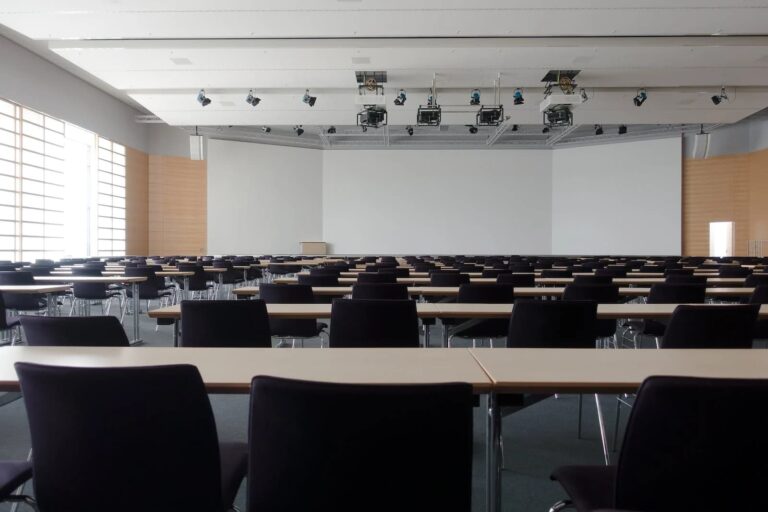Robust Learning Model: A Vision For An Online University
Dr. Yoram Neumann, and his wife, Dr. Edith Neumann, developed a vision for online education that continues to resonate today. Although both have passed away, their plan to create a high quality, affordable online university established a framework that influences the way colleges and universities offer distance learning.
Dr. Yoram Neumann, who died April 14, 2020, served many years as Chancellor and Chief Executive Officer of Touro University Worldwide. Dr. Edith Neumann served as Provost and Chief Academic Officer. After her death on Feb. 17, 2018, Touro University Worldwide named the School of Health and Human Services after her.
The husband and wife team spent their professional lives dedicated to the idea that quality education should be available to all. They focused especially on providing online education opportunities for adult learners, professionals, and the underserved, which fulfilled a commitment to the Judaic values of social justice, intellectual pursuit, and service to society.
To achieve those goals, the Neumanns developed the idea of a Robust Learning Model (RLM) for online education. They explained their vision in a January 2010 article published in the Journal of College Teaching & Learning called ”The Robust Learning Model: A Comprehensive Approach to a New Online University”.
Developing The Modern Online University
Current TUW students continue to benefit from the work developed by Drs. Neumann. Much of what they addressed in their article has taken shape in the degree programs offered by online universities today.
In the article, the Neumanns outlined “the components of the Robust Learning Model (RLM) as a conceptual framework for creating a new online university offering numerous degree programs at all degree levels.” They based the RLM on the belief that successful learning outcomes depend on many different factors. With the RLM, they employed those factors together in a holistic approach.
With the creation of Touro University International in 1998, the pair founded the first fully online, regionally accredited university. It also offered the first fully online doctorate program that did not require residency.
Drs. Neumann stated that within Touro, their RLM approach “was fully implemented and resulted in quality learning at all degree levels, affordable tuition, and accountability.”
Facets of the Robust Learning Model
Drs. Neumann won a Gold Hermes Creative Award for the previously mentioned article. The international award honors excellence in education, with an emphasis on emerging technology. Drs. Neumann had become pioneers in taking the connective power of the internet and putting it to use in education.
Years later, writing about RLM for The Jewish Voice, the husband and wife team stated that they began developing the idea while holding academic positions at various universities in the early 1990s.
They wrote “Most of our fellow academics were skeptical of its chances of succeeding, given the strength of the existing paradigm of traditional universities at that time.”
Many of the ideas they developed have since been adopted by online programs worldwide. Drs. Neumann outlined these ideas in The Jewish Voice, which included:
- An integrated system of information technology;
- An elaborate faculty deployment plan with specific roles and qualifications;
- Multi-faceted student services focusing on students and learning;
- Rapid response criteria for addressing student questions and providing feedback on student assignments;
- Advanced indicators of institutional performance and learning effectiveness.
Drs. Neumann were simply ahead of their time. Despite the skeptics in higher education, the pair felt determined to show the model could work. They just needed the means to do so.
Establishing Touro University
In March 1998, the president of the nonprofit Touro College in New York invited Drs. Neumann to launch an online division for the school. That school, Touro University International, eventually became a separately accredited institution and an academic and financial success. Touro College sold it in 2007 for 190 million dollars.
Touro University Worldwide was established in 2008. After the expiration of a non compete agreement, Drs. Neumann were asked to return to Touro, i.e., TUW in 2012. Together they brought “a more advanced version of the Robust Learning Model, taking advantage of experience with the model, cloud and mobile technology, and new developments in our conceptual map for an online university,” which the pair wrote in The Jewish Voice.
Drs. Neumann listed put best practices put into place at TUW, which include:
- Systematic development and assessment of the degree program curricula based on program learning goals;
- Effective student orientation;
- Selection of an appropriate online pedagogy and learning model;
- Providing a variety of learning activities to attain student learning outcomes for each course (they include interactive learning via threaded discussions, problem-based learning, and project-based learning);
- High levels of student engagement and faculty participation;
- A proactive program of learning outcomes assessment at the course, program and institution level;
- User-friendly learning management systems;
- Proactive and supportive student administrative services;
- Proactive and supportive online student advising and retention services.
As one way to test the validity of their learning system, Drs. Neumann had TUW conduct experiments comparing online students using their learning model to those taking the same course with the same professor in a traditional classroom setting. One major significant result was that the online students outperformed traditional classroom students.
Drs. Neumann also wrote about creating RLM and TUW, stating “Our fragile economy and the worldwide reality of adult learners juggling work along with higher education for career advancement makes online learning THE answer for career advancement.”
“Through Touro University Worldwide, we have been able to realize our goal of creating a learning environment where students can receive a higher education degree on their own schedule, allowing them to pursue careers simultaneously.”






